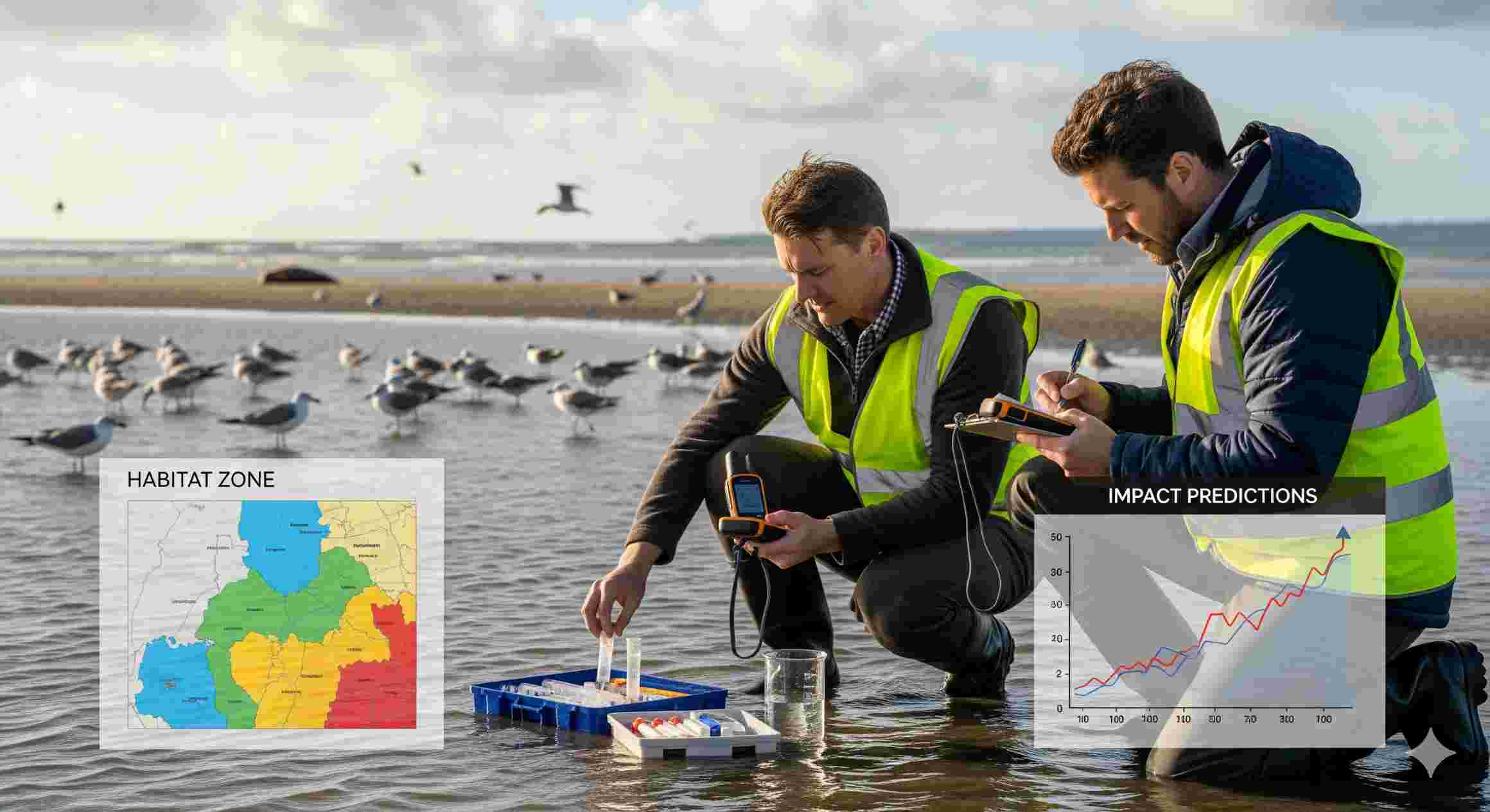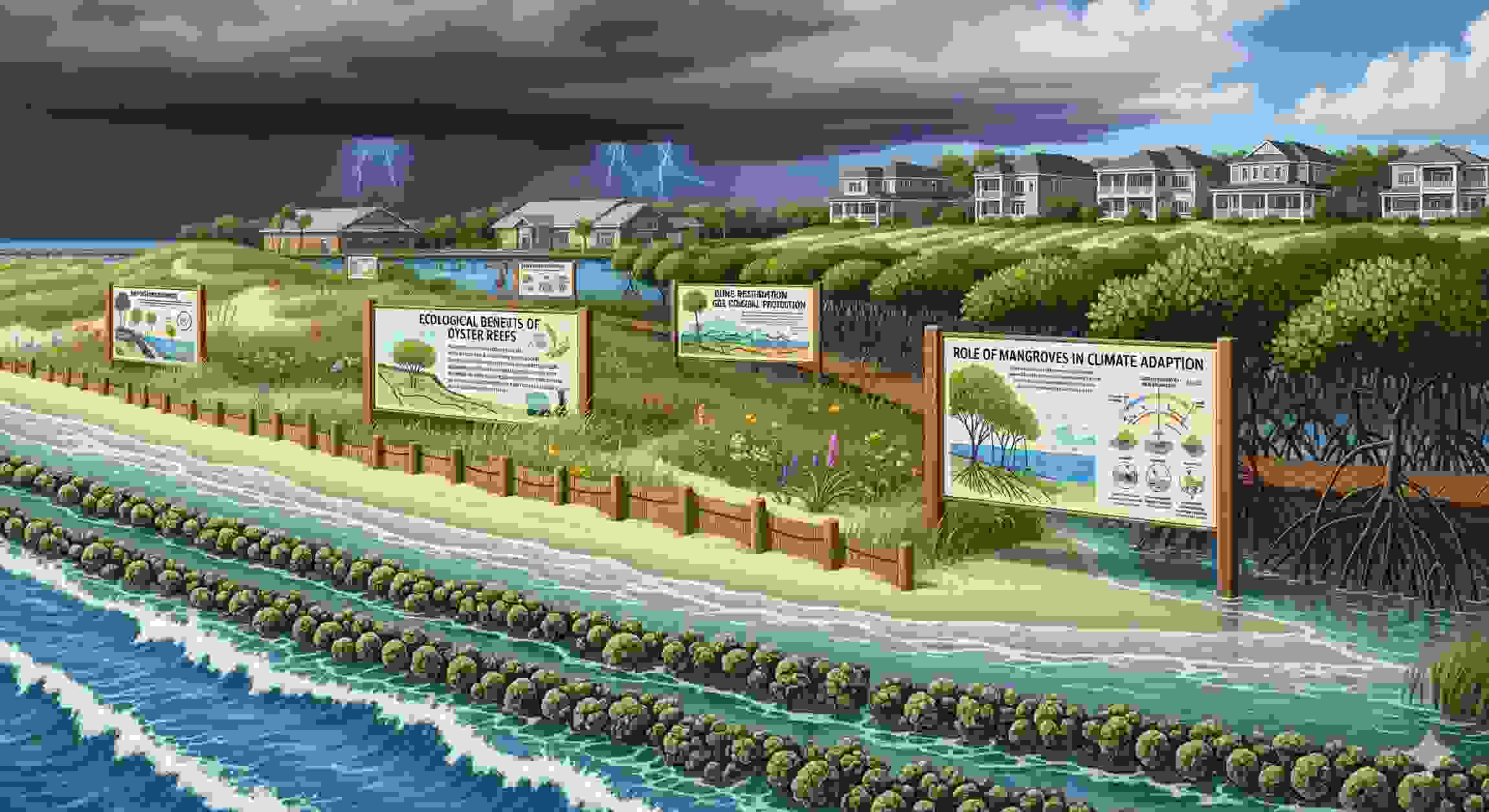Coastal regions face unprecedented challenges from climate change, development pressures, and environmental degradation. Successfully navigating these complex ecosystems requires specialized knowledge and careful planning to balance human needs with environmental protection. Professional ecological expertise plays a crucial role in ensuring coastal projects achieve their goals while preserving the delicate balance of marine and terrestrial environments.
1. Comprehensive Environmental Impact Assessments
Environmental impact assessments form the foundation of successful coastal projects. These detailed evaluations examine how proposed developments will affect local ecosystems, wildlife populations, and water quality. Professional ecologists conduct baseline studies to document existing conditions, identify sensitive habitats, and predict potential environmental consequences.
A well-executed assessment typically includes surveys of marine life, bird populations, vegetation patterns, and water chemistry. For example, a recent coastal development project in California used comprehensive impact assessments to identify critical nesting areas for endangered sea turtles, leading to modified construction timelines that protected breeding seasons. This proactive approach prevented costly delays and regulatory penalties while preserving vulnerable wildlife populations.
2. Strategic Habitat Restoration and Enhancement

Coastal projects offer unique opportunities to restore degraded habitats while achieving development objectives. Ecological expertise guides the selection of native plant species, design of living shorelines, and creation of wildlife corridors that connect fragmented ecosystems.
Successful habitat restoration requires understanding local ecological processes, soil conditions, and species interactions. Professional ecologists analyze factors such as tidal patterns, sediment transport, and nutrient cycling to design restoration strategies that will thrive long-term. Restored salt marshes, for instance, provide natural flood protection while supporting fish nurseries and migratory bird populations. Projects incorporating habitat restoration typically see 40% higher success rates in regulatory approval compared to traditional development approaches.
3. Expert Navigation of Environmental Regulations
Coastal development involves complex regulatory frameworks at federal, state, and local levels. Experienced environmental permitting consultants help project teams understand requirements, prepare necessary documentation, and maintain compliance throughout the project lifecycle.
The permitting process for coastal projects often involves multiple agencies, including the Army Corps of Engineers, EPA, and state environmental departments. Each agency has specific requirements for environmental documentation, mitigation measures, and monitoring protocols. Professional expertise ensures all regulatory requirements are met efficiently, reducing the risk of permit delays or rejections that can derail project timelines and budgets.
4. Innovative Mitigation and Monitoring Strategies
When coastal projects cannot avoid environmental impacts, effective mitigation strategies minimize harm and provide compensatory benefits. Ecological experts develop creative solutions such as artificial reef installations, beach nourishment programs, and constructed wetlands that offset project impacts.
Monitoring programs track the effectiveness of mitigation measures over time, ensuring projects meet their environmental commitments. Advanced monitoring technologies, including underwater cameras, water quality sensors, and satellite imagery, provide real-time data on ecosystem health. Projects with robust monitoring programs demonstrate 60% better long-term environmental outcomes compared to those with minimal oversight.
5. Climate-Resilient Design Integration

Climate change presents escalating challenges for coastal projects, from sea-level rise to increased storm intensity. Ecological expertise helps incorporate climate resilience into project design through nature-based solutions that adapt to changing conditions.
Living infrastructure approaches, such as oyster reefs and dune systems, provide flexible coastal protection that evolves with environmental conditions. These solutions often cost 30% less than traditional hard infrastructure while delivering additional benefits like habitat creation and carbon sequestration. Professional ecologists analyze climate projections, assess vulnerability factors, and recommend adaptive management strategies that maintain project viability under changing conditions.
Supporting coastal projects with ecological expertise creates a pathway to sustainable development that protects valuable ecosystems while meeting human needs. The integration of scientific knowledge, regulatory expertise, and innovative design approaches ensures projects deliver lasting value for communities and the environment. As coastal pressures continue to intensify, the role of ecological expertise becomes increasingly vital for project success and environmental stewardship.




